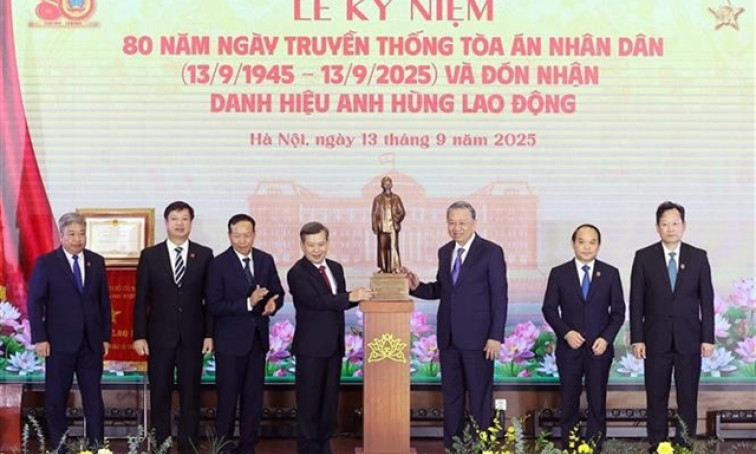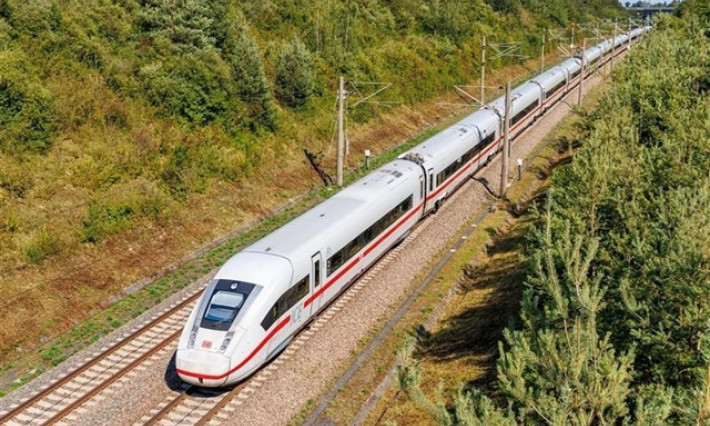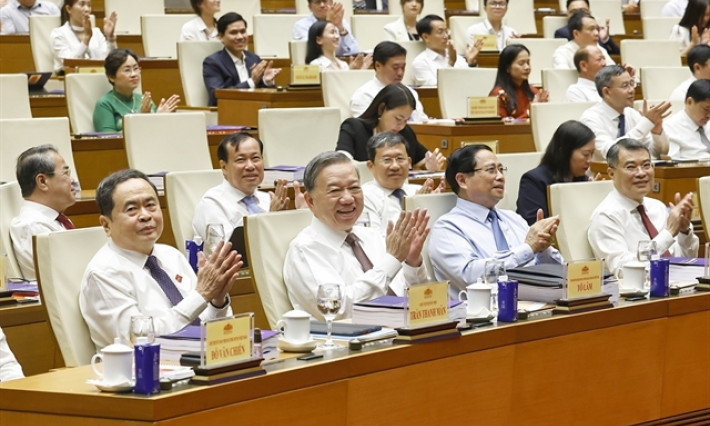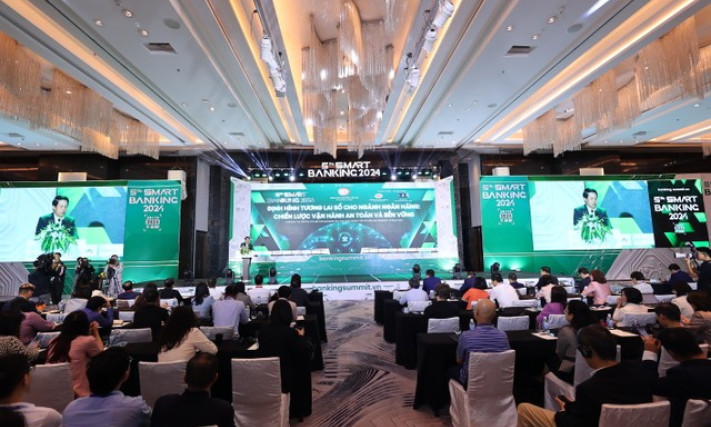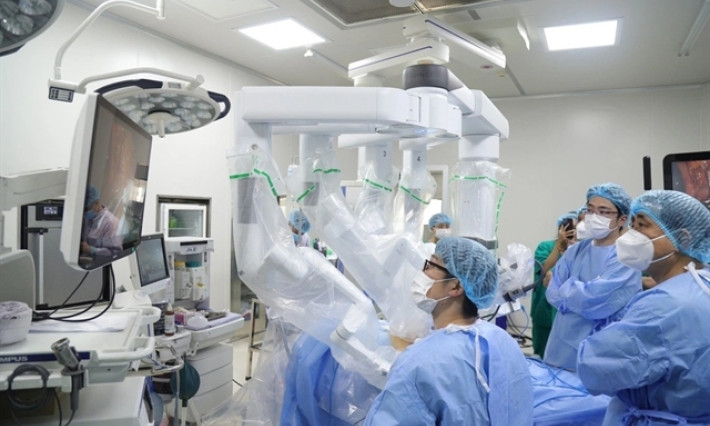Mông people celebrate traditional New Year festival
This traditional folk festival honours the ethnic and cultural identity, and promotes the historical, cultural and tourism potential of the two communes to domestic and international tourists.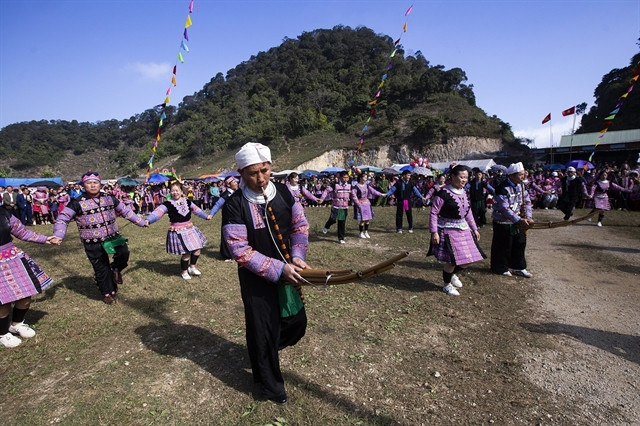
The traditional New Year festival, or Gầu Tào, of the ethnic Mông people, has been celebrated in Hang Kia and Pà Cò communes, Mai Châu District in the northern province of Hòa Bình.
This folk festival honours the ethnic and cultural identity, and promotes the historical, cultural and tourism potential of the two communes to domestic and international tourists.
The festival included the rituals of erecting a bamboo pole, a sacred symbol of repelling bad luck and bringing good luck for the new year.
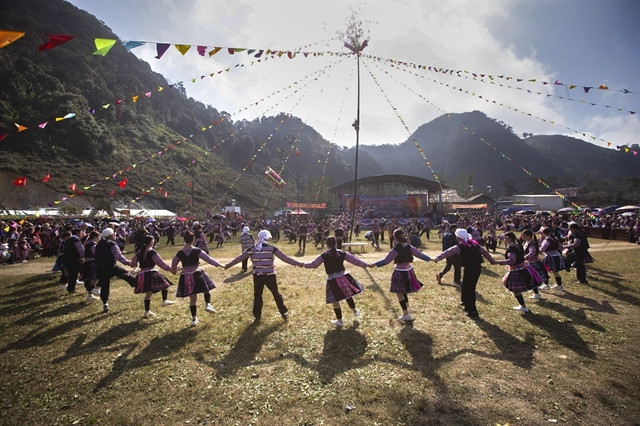
After the rituals, local residents and visitors joined a bamboo flute dance and a khèn panpipe performance, threw cloth balls, enjoyed ethnic cuisine and watched folk sports competitions, such as crossbow shooting, and glutinous rice cake making.
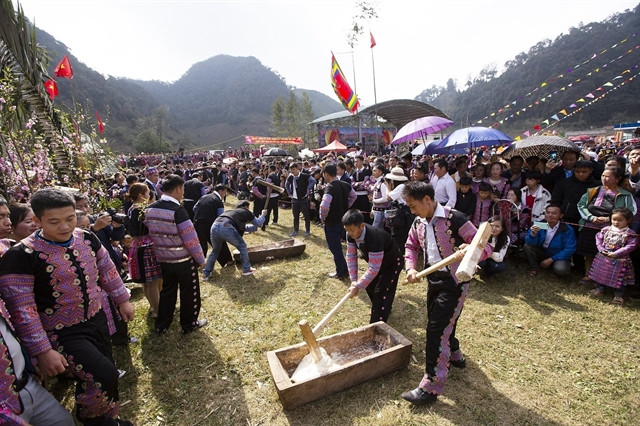
The ethnic Mông community accounts for over 63 per cent of the population of Hòa Bình Province. They have an abundant and diverse spiritual life, and many unique cultural traditions, the highlight of which is Gầu Tào festival.
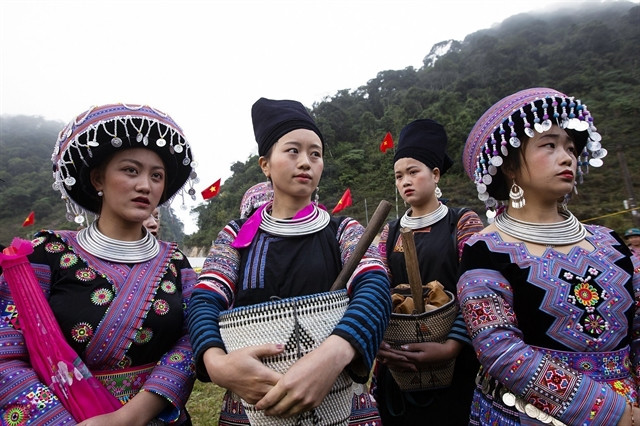
The festival originated from an old custom of the Mông in Sa Pa. When a couple couldn’t have a child after years of marriage, the husband climbed up a hill, made offerings to the god of the mountain and begged for his blessing to have a child. After the couple gave birth to a child, they invited relatives and villagers to a big ceremony to thank the god. This ceremony was held again by the family every three or five years, and gradually became a community festival held annually to pray for peace, prosperity and good luck for the whole village.
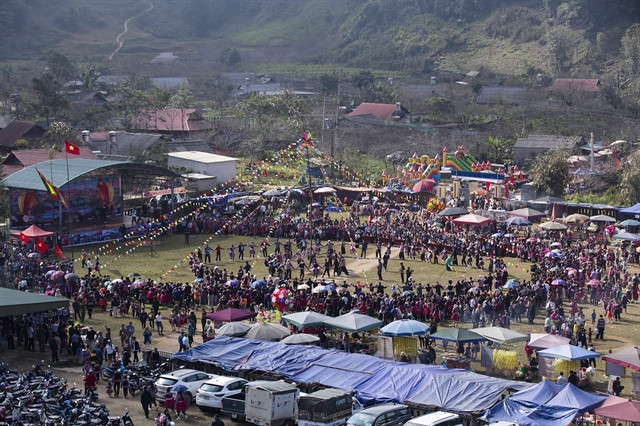
The festival is an occasion to pray for good weather and abundant crops. It also provides a chance for the elderly to gather and wish each other longevity and bless their descendants with luck and health, and for girls and boys to make a date and pray for happiness all year around.
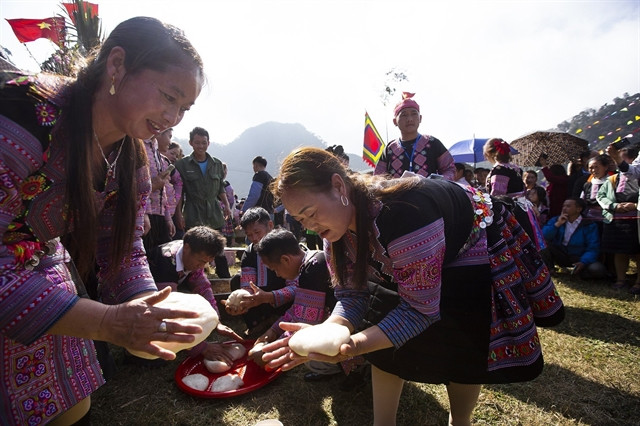
It is also an occasion for the Mông people who live, work or study far from home to reunite with their families and welcome the New Year together before entering a new cultivation and livestock breeding season.

